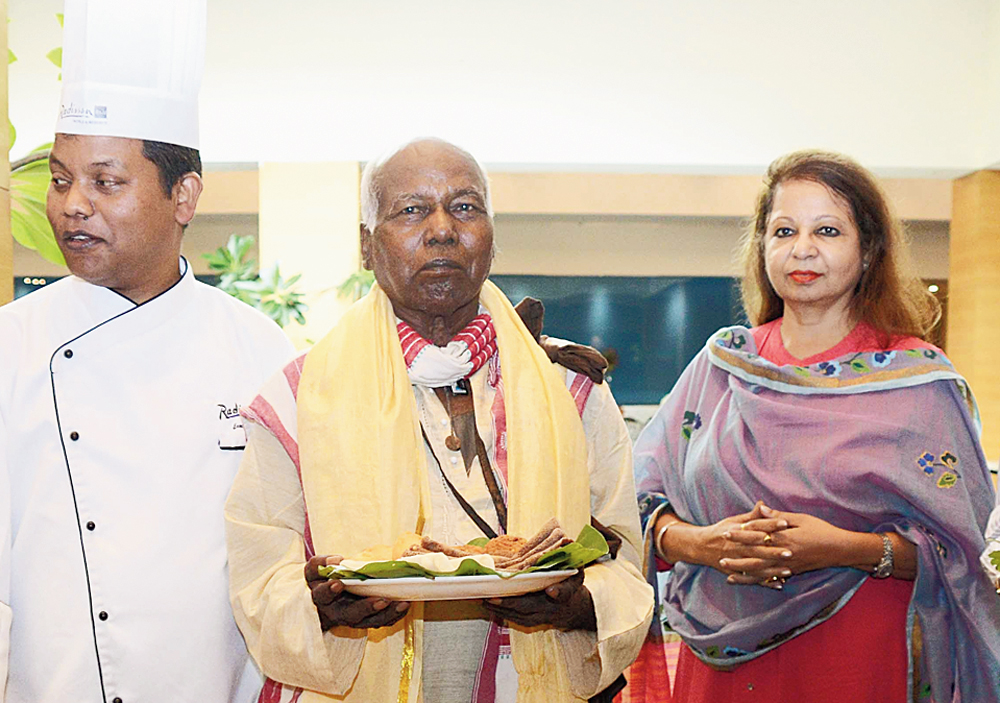Jharkhand’s waterman Simon Oraon, winner of the Padma Shri in 2016 for his pioneering work in water harvesting and combating drought, is a worried man.
Affectionately called Baba or Parha Raja by villagers of Bero block in Ranchi, where he has done his life’s work in making check dams, digging wells and ponds and planting trees, the octogenarian told The Telegraph that he was unhappy that it wasn’t raining enough this monsoon and that the government was encouraging deep boring that in the long run harms the water table.
Told that the reservoirs and check dams that he built in Bero were working fine, he shook his head. “Kahan thik hai, paani hi nahin hai (nothing fine, there’s no water),” he said. “It would have been okay if the water level (at reservoirs) stood at 12 feet at least,” he said.
Never one to rest on his laurels, he is a man on a mission to save groundwater organically through wells and ponds. “But the government is encouraging deep boring that in the long run actually drags down the water level. Sarkar ka mat puchhiye, koi mera baat sunte hi nahin (Don’t ask about the government, no one pays heed to what I say),” Oraon said.
He added: “If you ask me, deep boring shouldn't be encouraged for irrigation, wells are sufficient. Four or five dug wells can help irrigate a large chunk of land. But for that you need a healthy water table. For that, it needs to rain well and people need to retain that rainwater.”
Oraon was speaking on water on the sidelines of a tribal food festival at Radisson Blu hotel here on Tuesday. He had inaugurated the food fest.
He was worried about inadequate rainfall this year. When told that July rains were dragging down the deficit, he said: “I fervently hope so.”
Oraon, who hails from Khaksa Toli village in Jamtoli-Hariharpur area of Bero, didn’t have much of a formal education. But even from the early 1960s, he had the sense to realise that rainwater was precious and allowing it to run off was a pity when it could come of use all round the year.
“Save rainwater wisely, use it well, I’d tell farmers,” he smiled, remembering the mud check dams that did not last the first shower, but started a long people’s movement.
In his teens and 20s, Oraon went around planting trees and making check dams to prevent soil erosion and rainwater runoff. He told farmers, who had been facing crop failures due to erratic rainfall, to do the same. When they saw how sincere he was, they started to listen. It helped that he was one of them, he smiled.
As a result of his initiatives, around 50 villages of Bero turned green and the block became a vegetable-cultivation hub, bringing prosperity and arresting migration of youths to a large extent.

